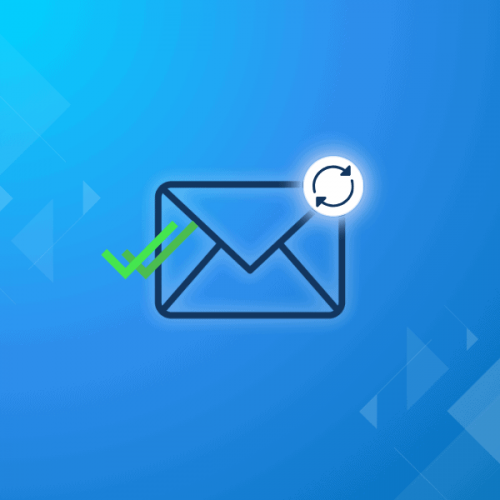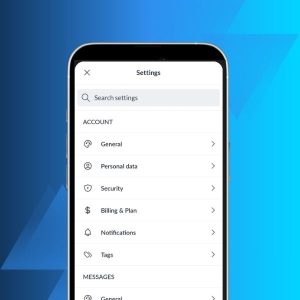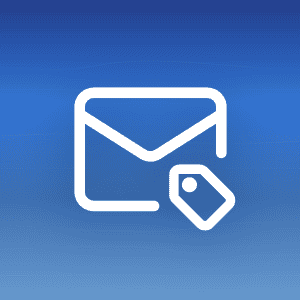In today’s tech-driven world, our emails hold a lot of important information. From personal chats to work conversations, it’s crucial to keep our emails secure. This guide will show you how to easily and securely backup your emails, for free.
9 reasons why email backups matter
Imagine losing all your emails due to a simple mistake, a computer glitch, or a cyber threat. Scary, right? Here is why you should always have an email backup:
- Data loss prevention: Emails contain important information, from personal conversations to critical work-related details. Accidental deletion, hardware failures, or others issues can result in the loss of this valuable data. Regular backups is the only way to prevent such loss.
- Protection against cyber threats: With the rise of cyber threats like hacking, ransomware, and phishing attacks, having a backup ensures that even if your email account is compromised, you can recover your essential data.
- Accidental deletion: It’s easy to mistakenly delete important emails, and sometimes, email providers may not offer a straightforward recovery process. Regular backups serve as a safety measure, allowing you to retrieve accidentally deleted emails.
- Migration and upgrades: When switching to a new email service or upgrading your email client, backups ensure a smooth transition. You can easily transfer your entire email history without the risk of losing data during the migration process.
- Long-term storage: Emails often contain information with long-term value, such as contracts, agreements, or historical records. Backing up emails provides a means of long-term storage, ensuring that important information is preserved over time.
- Personal archives: Sentimental or personal emails, such as correspondence with friends and family, hold emotional value. Backing up these emails ensures that you can revisit cherished memories and conversations, maintaining a personal archive.
- Collaboration and sharing: Backups enable easier collaboration by providing a reliable source of shared information. If you collaborate on projects via email, having a backup ensures that everyone involved has access to the necessary communication history.
- Protecting against file corruption: Email files can occasionally become corrupted due to software issues or other factors. Regular backups act as a safeguard against file corruption, allowing you to restore non-corrupted versions of your emails.
- Peace of mind: Knowing that your emails are backed up gives you peace of mind. Whether it’s sentimental emails, important documents, or crucial business communication, having a backup ensures that you won’t lose valuable information.
Steps to safely back up your emails
1. Turn on Two-Factor Authentication (2FA):
Keeping your account safe is the first and most important step to secure and back up your data. Without protection, there’s a risk of a breach, and you could lose all your emails before having the chance of recovering them.
Add an extra layer of security to your Mailfence account by turning on Two-Factor Authentication (2FA). It’s like having your own secret code that only you can use.
Check out more tips on how to keep your account safe.
2. Use Mailfence’s encryption tools:
Imagine backing up your emails and storing them in a corrupted cloud service? Or on a hard drive that you might lose? It is crucial to have your emails encrypted so no one besides you is able to read them.
Mailfence has different encryption tools. One of them is called PGP (Pretty good privacy), and it keeps your emails secure. Learn how to use it to encrypt your messages.
3. Save your emails regularly:
Make sure you save your emails once every week. Although this can be fastidious with some email providers, with Mailfence, you can save your emails with a few clicks. Download them in EML format with the archive feature and put them onto an external hard drive.
The key is to do it regularly, like a digital safety net.
4. Set up “automatic” backups with POP3:
POP3 and IMAP are two different protocols which work like messengers between your device and the Mailfence server. IMAP keeps your emails in sync across all your devices, while POP3 downloads them to your device. Once your emails are downloaded to your device, you can locate them in a folder under your email client’s name, and copy them on your device or on an external drive.
Tips for keeping your email backups secure
- Remember your passwords: Keep your passwords strong and change them once in a while. We highly recommend you to use password managers
- Pick a safe storage spot: Choose a secure place to store your backups, whether it’s a trusted external hard drive or a reliable cloud service.
- Check your backup settings from time to time: Give your backup settings a quick checkup every now and then to make sure they’re up to date.
Conclusion
Backing up your emails is like putting a safety net under your digital life. With this simple guide and Mailfence by your side, you can keep your emails safe and sound.
Give it a go, and enjoy worry-free emailing : Create a free account!
Learn more about email security with our free email security & privacy course.




